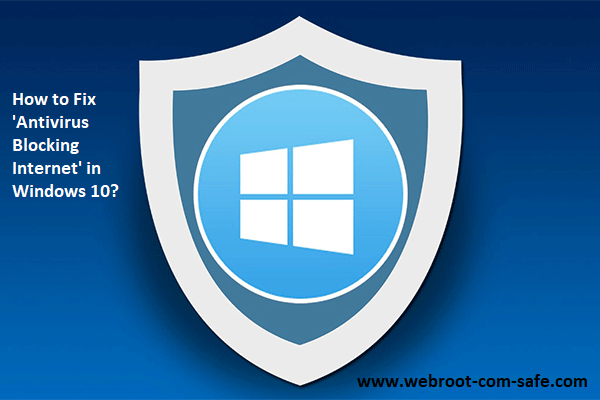Do you need an antivirus on your computer?
Surely each of you has acquaintances who express themselves in the spirit - "I do not have an antivirus on my computer, I'm fine without it." But is it really so? In this article, we want to understand the main reasons why many users do not want to install antiviruses on their PCs, as well as tell you whether an antivirus is needed or not. www.webroot.com/secure
Reasons why users do not want to install antiviruses in
fact, these reasons are quite serious. Of course, most users have at least the
simplest, free versions of antiviruses, but there are also users who prefer not
to bother for the following reasons.
Modern browsers are good enough as it is. This is indeed a
fact. Most browsers will at least warn you when you visit a malicious site. And
Chrome and Firefox will additionally scan downloaded files. The only
inconvenience is that browsers without additional extensions will not block
annoying ads, so you have to install them.
What can we say about the effectiveness and necessity of
antiviruses, when modern Windows 10 initially has a protector built into the
firmware. Moreover, it is very difficult to turn it off and for this you will
have to try a lot. Therefore, it is not entirely true when users with a
"ten" say that they do not have an antivirus. They have it, they just
might not know about it.
Again, today it is Windows that is the undisputed leader in
PC operating systems. But this is not the only system. Alternatively, there is
Linux, and in this case, a virus for such a system will still need to be looked
for. In addition, a similar situation is observed in macOS, and in Android, and
in iOS.
But what is most unpleasant is the possibility of
surveillance. Some antiviruses are able to read browser history and information
about Internet activities. And Webroot is even able to read correspondence on
social networks. Moreover, even the “incognito” mode does not save. Antivirus
manufacturers use this data to sell to marketers in order to "push"
you the right ads.
Dishonest advertising is another not the most convenient
thing in the antivirus. The fact is that setting up an antivirus is one more
headache. And if you forget to uncheck somewhere that the antivirus will be
quite capable of installing some garbage application for you that you have not
needed for 300 years. But in fact, for downloading the manufacturer will
receive some bonuses. Webroot with such “chips”.
Antiviruses are overloading the system. In general, this is
true, and if you read our reviews on certain models, you might have noticed
that the operation of some programs requires 100% processor load, even a good
one. It is clear that much here will depend on the power of your computer, but
to be honest, only some antiviruses are able to adequately load the system.
The antivirus itself is also full of ads. As a rule,
manufacturers advertise their products. But there are also antiviruses that
advertise affiliate programs. And this is not the most pleasant, because
constant alerts have to be turned off, and with them important alerts that can
really affect the operation of your computer are turned off.
Doubtful efficiency. Most antiviruses in practice show
themselves well, but only with familiar programs. There was a time when a wave
of viruses swept over the network, and no antivirus, no matter how powerful it
was, could not cope with the flow of viruses. But there has not been such a
virus attack for many years, so in practice it is difficult to say how quickly
programmers will deal with a new flurry of viruses when an antidote for one
virus is found, and then a new one is already attacking. webroot.com/secure
Do you need an antivirus on your computer?
And here we come to the most important question, is an
antivirus on a PC really necessary? And we, without thinking twice, will answer
- we need it. Let's take Webroot statistics as an example. Every year they
reflect more than half a million attacks that are carried out from resources
located around the world. In addition, Webroot annually detects about 70
million new viruses, and also repels about 1.5 million hacker attacks. Now put
it all together and it turns out that Webroot alone has protected almost a
billion attacks. And imagine that other eminent antiviruses have similar
statistics. Now you understand why an antivirus is needed?
Again, you cannot know for the future what you will use. The
Internet is good, but what if you come across a flash drive or an external hard
drive that also contains a virus? Are you willing to take that risk? Yes, with
the advent of Windows 10, the popularity of third-party antiviruses has fallen,
but many users still sit on 8.1 and don’t know grief, and someone even uses the
“seven”, albeit a broken one. And then the defender of the “tens” does not
always cope with all attacks. Yes, it is not so much inferior to other giants,
but in terms of protection it loses to the same Webroot by almost half.


